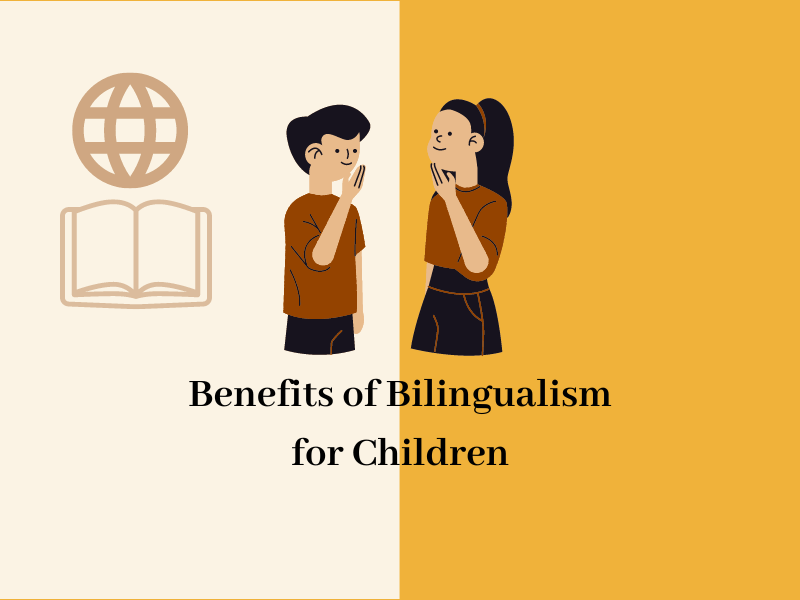In a rapidly globalizing world, bilingualism has emerged as a valuable asset, offering a wide array of benefits for children’s cognitive development and cultural preservation. At our organization, we recognize the significance of preserving endangered ethnic mother tongues while equipping children with proficiency in official languages and English. In this article, we delve into the numerous advantages of bilingualism, exploring how it enhances cognitive abilities, promotes cultural identity, and prepares children for a future marked by intercultural understanding and communication.
Cognitive Advantages of Bilingualism
Research suggests that bilingual children exhibit enhanced cognitive abilities, such as better problem-solving skills, increased mental flexibility, and improved attention and focus. The constant toggling between two languages strengthens their executive function, resulting in improved cognitive control and higher levels of linguistic and metalinguistic awareness.
Language Skills and Academic Success
Bilingualism positively impacts children’s language skills, enabling them to become proficient in multiple languages. This linguistic versatility provides a solid foundation for academic success, as bilingual children often demonstrate advanced reading comprehension, vocabulary acquisition, and overall language proficiency.
Cultural Identity and Sense of Belonging
Bilingualism nurtures a strong sense of cultural identity and belonging among children. By embracing their ethnic mother tongue alongside official languages, they develop a deeper connection to their heritage, traditions, and values. This promotes cultural pride and preserves endangered languages, contributing to the rich diversity of our global community.
Improved Intercultural Communication
Bilingual children possess a unique advantage in navigating intercultural communication. Their ability to bridge language barriers fosters understanding and empathy, facilitating meaningful connections with people from different linguistic and cultural backgrounds. Bilingualism promotes global citizenship and prepares children for a future characterized by intercultural collaboration.
Cognitive Flexibility and Adaptability
Growing up bilingual enhances cognitive flexibility and adaptability. Children develop the ability to switch between languages effortlessly, adapting to different linguistic and cultural contexts. This adaptability extends beyond language and supports resilience, creativity, and a broader worldview.
Enhanced Problem-Solving and Critical Thinking Skills
Bilingualism fosters enhanced problem-solving and critical-thinking skills. Bilingual children often approach challenges from different perspectives, drawing on their linguistic and cultural knowledge to find innovative solutions. This cognitive agility primes them for success in an ever-evolving, multicultural society.
Cultural Preservation and Heritage
By encouraging children to learn their ethnic mother tongue, we actively contribute to the preservation of endangered languages and cultural heritage. Bilingualism serves as a powerful tool for maintaining cultural traditions, oral histories, and unique linguistic expressions, ensuring the continuity of diverse ethnic communities.
Increased Empathy and Intercultural Understanding
Bilingual children develop a heightened sense of empathy and intercultural understanding. Through language immersion and exposure to different cultures, they gain insight into diverse perspectives, challenging stereotypes, and fostering inclusivity. Bilingualism cultivates open-mindedness and appreciation for cultural differences.
Improved Career Prospects
Proficiency in multiple languages positions bilingual children for greater career prospects in an increasingly globalized job market. Their ability to communicate effectively across cultures and languages opens doors to international opportunities and enriches their professional skill set.
Family and Community Connections
Bilingualism strengthens family and community connections. Children who speak their ethnic mother tongue can communicate with older generations, preserving intergenerational bonds and fostering a deeper understanding of familial traditions. Bilingualism also facilitates connections within ethnic communities, contributing to a sense of belonging and cultural continuity.
Conclusion
Bilingualism offers a myriad of benefits for children, ranging from cognitive advantages to cultural preservation and intercultural communication skills. By encouraging the learning of endangered ethnic mother tongues alongside official languages and English, we empower children to embrace their cultural identity, prepare them for a globalized world, and contribute to the preservation of linguistic diversity. Bilingualism opens doors to new opportunities. It enhances cognitive abilities, and fosters intercultural understanding—ultimately shaping well-rounded individuals ready to thrive in an increasingly interconnected society.

